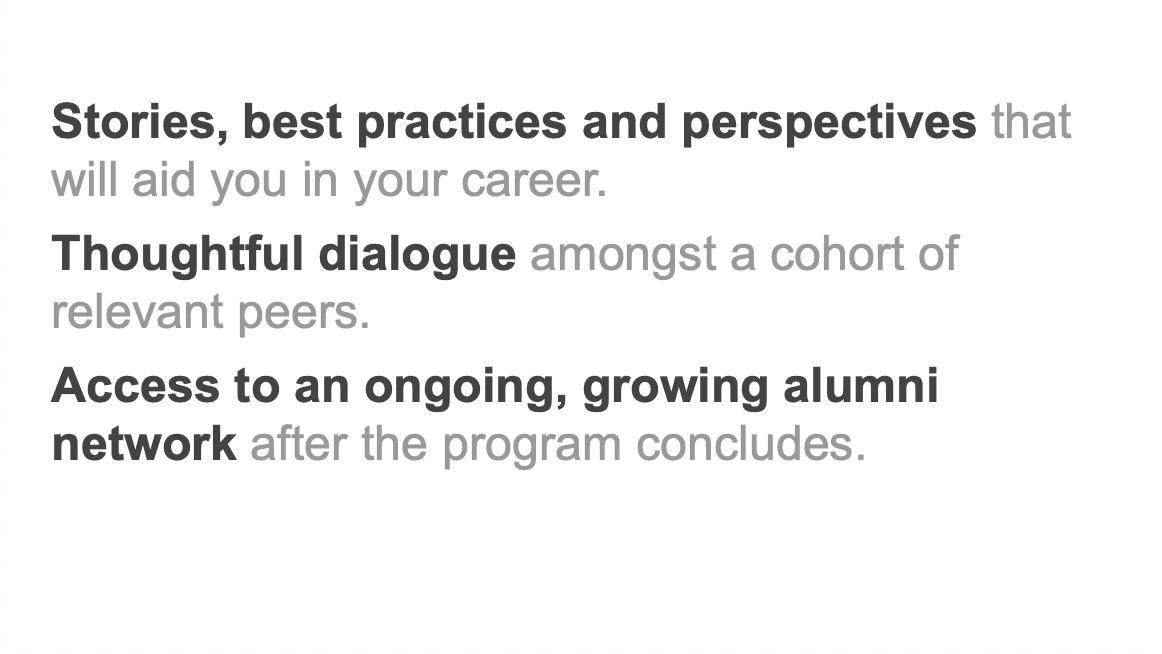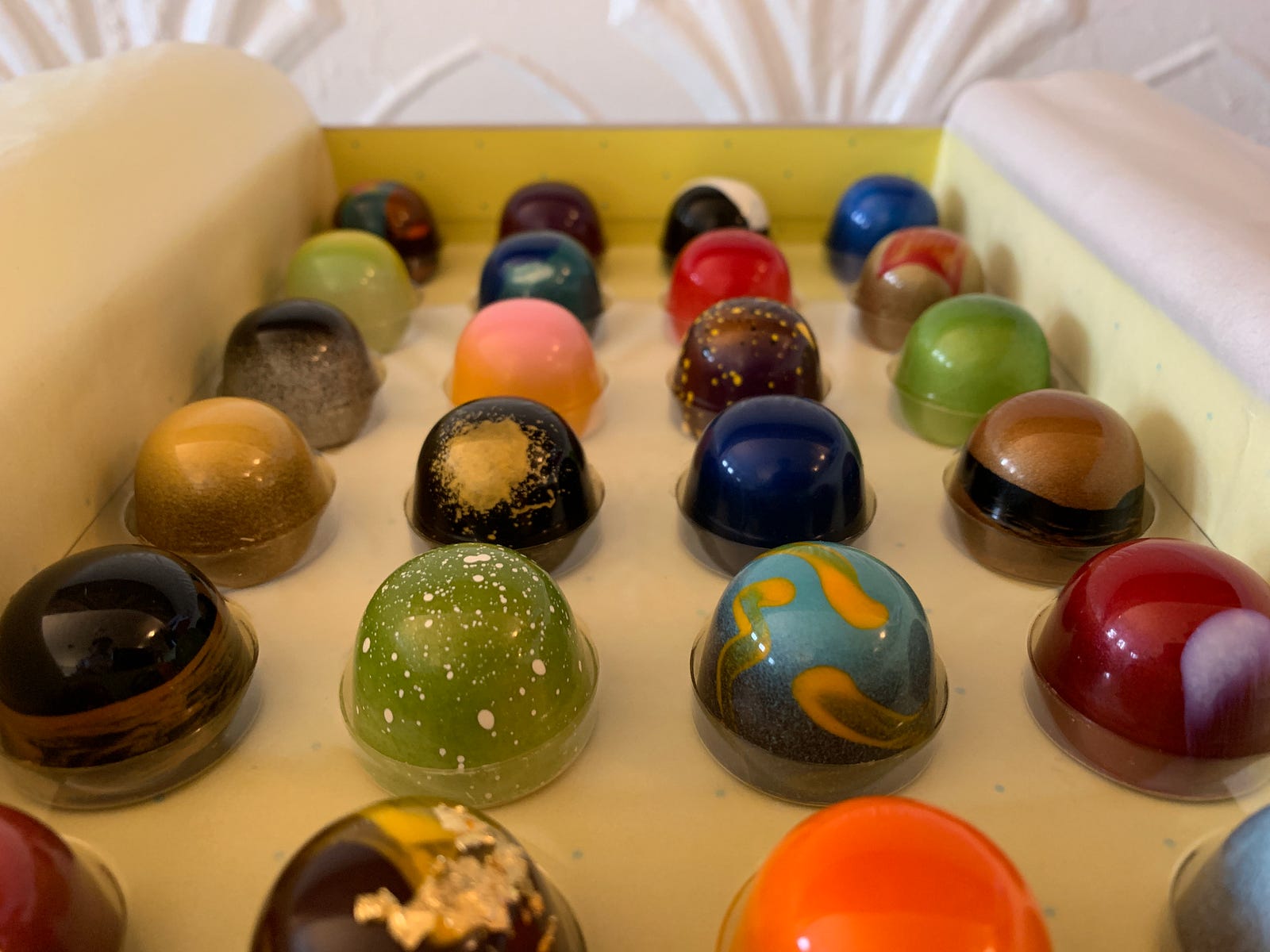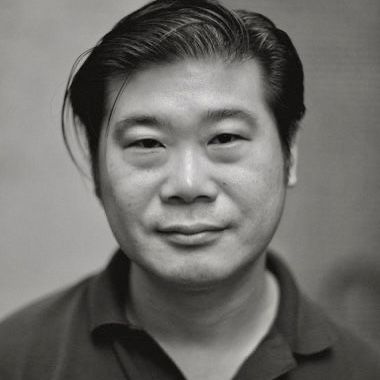Orbital Studios: Season 8
The hard part about making things with humans is humans.
— Gary Chou (@garychou) April 2, 2019
Essentially, this is why Orbital Studios exists.
Last week, we wrapped up our 8th cycle of Orbital Studios.
58 people from over 40 technology companies in NYC participated in our Studios for Senior Product Managers, Year 1 Product Managers, Engineering Managers and Engineering Directors (meta-managers).
The Studios are like a retrospective for your job—an opportunity for software development practitioners to collectively reflect on (and explore) the challenges of their respective roles.
Each Studio consists of a relevant set of peers from across the industry who have similar responsibilities (so they’re relatable) but who don’t actually work at your company (so that you’re free to speak your mind).
We do this because the workplace is performative—being wrong comes with a political cost, and accessing a range of perspectives (and data points) may be challenging. Both of these constraints make for a suboptimal learning environment.
Lessons Learned

The value of a community of practice is a function of both the level of thoughtfulness in the group as well as their willingness to share.
Thankfully, we had a wonderfully thoughtful group of people who were more than willing to share their challenges, stories, and perspectives.
Here’s a small subset of the insights they gleaned from each other over the course of the program:
“Ways of working are a product in and of themselves.”
“Find your allies. Identify the people you can share/co-own the problem with.”
“It’s great to give constructive feedback but remember to also give out positive feedback.”
“Push yourself to find what environment brings out the best version of yourself.”
“Your work isn’t done until you tell it’s story and ‘sell it.’ Communicate wins to show value.”
“Sometimes your job is a collection of activities that get you to the job you really want to be doing.”
Allies and deputies aren’t a sign of weakness, they’re a sign of strength, and building those relationships and structures is something to be celebrated.
“Focus your decisions around assumptions rather than answers. Think of yourself as an investigator rather than someone who has all of the answers.”
“Culture is easiest to change when there is a concrete problem everyone is aware of, sometimes you have to manufacture the awareness of the problem.”
“It’s okay that I’m facing the issues I am facing. It’s common to take some time to learn my way, it doesn’t just “click” for people and this skill comes with time and experience.”
“Talking through your challenges with others is valuable, and doesn’t need to be about finding a solution. Sometimes just fresh perspectives can help, especially when you are so close to the issue yourself.”
“A title doesn’t mean you have more control over whatever it is you’re ‘responsible’ for. You’ll make change by influencing and leading, mentoring and giving guidance, and communicating.”
“It’s important to have a support system. Personal, career, and peer coaches/mentors can help to become more self aware and understand how to handle issues that arise.”
“We get the weird shaped problems, because there are processes in place to handle simple problems. And weird problems sometimes have unresolved solutions, so we can spend a lot of time having felt like we failed.”
“Make your decision making process public and clearly define your unknown vs known factors. Communicate this process to your stakeholders in an active and purposeful way to avoid having to defend your decisions when it’s too late.”
“PM’s problems differ across company size, industry, etc. But, I’ve realized that the solutions are often the same. It’s about understanding people, taking time to build relationships, staying curious, understanding values, and holding empathy for others and their challenges.”
These insights aren’t intended to suggest that the participants have achieved a Keanu-like mastery of their craft. Rather, they’re more like a set of collective souvenirs—reminders of the simple things that are hard to do, easy to forget, yet incredibly impactful to one’s success.
Community-driven Learning
None of this would be possible without our network.
Our Alumni, by far, is the largest source of referrals. And, they’ve very generously contributed their time, stories and hard-earned wisdom as guest advisors, facilitators and speakers, too.
A huge thanks to our Spring Studios guests:
- Alumni: Adam Szatrowski, Ashley Miller, Billy Tobon, Cedric Dussud, Cheryl Cho, Diana Hsieh, Igor Lev, John Cline, Marc Brown, Patty Delgado, Rick Mangi, Sam Rozenberg and Will Howard
- Friends: Eric Friedman, Frank Harris, Jen Hau, Kirk Fernandes, Lara Warman, Katherine Pan
- Co-Creators: Camille Fournier, Kellan Elliott-McCrea, and Leland Rechis
Thanks also to KC Oh, Kathleen Chung, Sara Chipps, Mike Ma and Randy Brown for some very timely help, advice and support over the past 3 months.
Finally, thanks to all our participants this Spring for their trust in the process and constant positivity in spite of sub-optimal start times and challenging commutes.
This has been an incredibly fun cycle, and I’m looking forward to the next round this Summer (TBD).
Learn more about Orbital Studios here, follow us on Twitter, and sign up here to be notified when we announce our next round.

